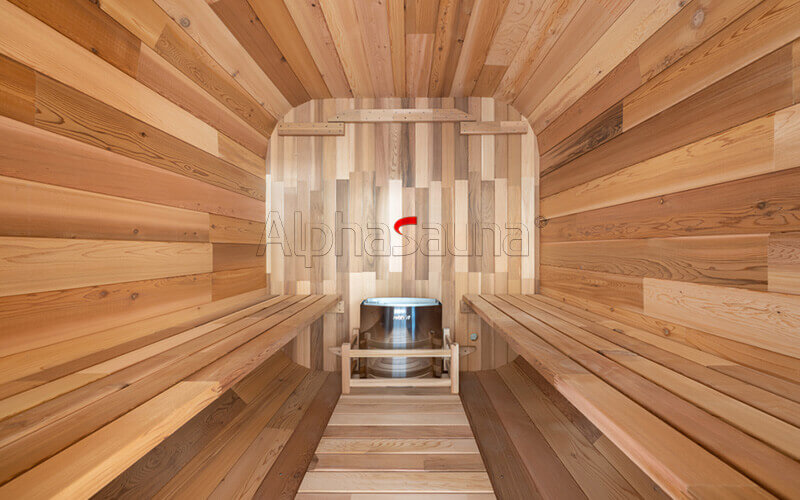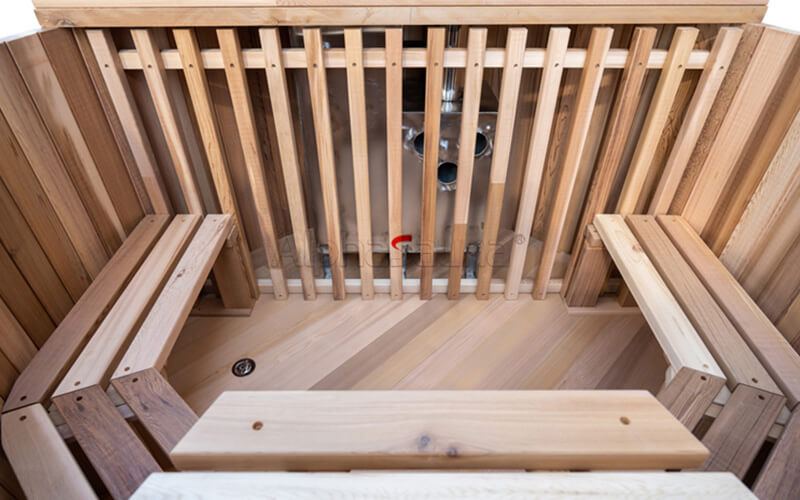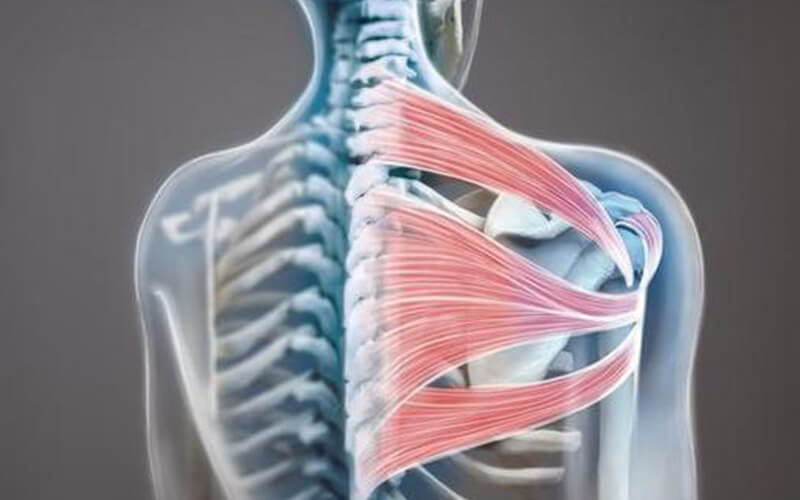Sauna Vs. Hot Tub: Which Is Better For Recovery?
If you are looking to relieve muscle soreness after exercise and accelerate recovery through heat therapy, both saunas and hot tubs can be excellent choices. Saunas and hot tubs are highly regarded for their therapeutic effects. Healthy heat therapy can relax muscles, alleviate tension and pain, and thus speed up the body's recovery. But which is more beneficial for recovery? Some people prefer using a sauna after a workout to relax and expedite recovery, while others enjoy relaxing their muscles and promoting recovery in a hot tub. In this article, we will delve into this topic and explore which is more advantageous for body recovery—sauna or hot tub—examining the effects and differences between them.

Heat therapy is a traditional health treatment that offers numerous benefits to the body, enjoying widespread popularity and adoption. It has gradually become an indispensable part of people's lives. Heat therapy works by applying heat to the body, triggering physiological responses that promote blood circulation, relax muscles, and alleviate fatigue. It plays a significant role in body recovery and is a favored tool among athletes and health enthusiasts.
Saunas, as the most traditional form of heat therapy, have always been highly favored. Saunas create a high-temperature environment through methods like electric heaters, wood-burning stoves, and steam generators, thereby achieving therapeutic effects. The temperature in a sauna typically ranges from 60 to 100 degrees Celsius. In such a high-temperature environment, users tend to sweat profusely, which affects various bodily functions. This natural reaction not only helps to expel dirt from the skin's surface and toxins from the body but also promotes blood circulation, increasing the delivery of oxygen and nutrients. This process relaxes muscles, alleviates fatigue, and reduces muscle tension and pain, facilitating muscle recovery after exercise and speeding up overall body recovery.
Hot tubs, on the other hand, use warm water to achieve therapeutic effects. The temperature is lower than that of a sauna, usually ranging from 37 to 40 degrees Celsius. By soaking in a hot tub filled with warm water, the heat can relax both the body and mind, and the water flow can massage the body, promoting a state of relaxation. Hot tubs create a comfortable, relaxing, and quiet environment, allowing both body and mind to relax. This helps to relax muscles and relieve fatigue. For athletes who have just finished exercising, the environment of a hot tub can quickly relax their muscles and ease muscle fatigue, thereby speeding up body recovery.
In summary, both saunas and hot tubs help to relax muscles and accelerate body recovery. Saunas primarily provide a high-temperature environment through heated air or steam, promoting sweating and detoxification, which aids in relaxation and recovery. Hot tubs use warm water, often combined with water flow massage, to help relax muscles and relieve fatigue and pain, thus speeding up recovery.

What Are The Health Benefits Of Hot Tubs And Saunas?
Health Benefits Of Sauna
As a traditional form of heat therapy, saunas offer numerous health benefits. Here are the main health benefits:
1. Muscle Relaxation:
The high-temperature environment of a sauna helps to relax muscles, reducing muscle tension and pain, making it suitable for muscle recovery after exercise.
2. Detoxification:
The high heat in a sauna induces profuse sweating, which promotes the expulsion of sweat and toxins, aiding in detoxification and cleansing.
3. Improved Blood Circulation:
The high temperatures help to open pores and increase blood flow, promoting better circulation. This aids in the delivery of oxygen and nutrients, speeding up muscle recovery.
4. Stress Relief:
Saunas help to relax both the body and mind, alleviating anxiety and relieving stress, keeping the body in a relaxed state.
5. Enhanced Immune System:
Regular use of a sauna can help to strengthen the immune system, boosting immunity and reducing the risk of infections.

1. Stress Reduction:
The warm water and massage action of a hot tub help to relax both body and mind, relieve stress, alleviate anxiety, and improve mood.
2. Relief Of Muscle And Joint Pain:
The warm water in a hot tub can help to relax muscles, and combined with the massage effect of the water flow, it can alleviate pain from muscles and joints.
3. Improved Sleep Quality:
The warm water and water flow massage of a hot tub provide a comfortable and relaxing environment. Using a hot tub before bedtime can help improve sleep quality and speed up falling asleep.
4. Improved Cardiovascular Health:
The heat therapy of a hot tub helps to improve cardiovascular health, promote heart health, and have a positive impact on cardiovascular function.
Saunas and hot tubs each offer unique health benefits. Depending on your needs and physical condition, you can choose the heat therapy method that is most beneficial to your body to fully experience and enjoy the effects and pleasures of heat therapy.

Difference Between Hot Tub And Sauna: Which Is Better After Exercise?
Exercise induces various bodily reactions that can lead to fatigue and discomfort, primarily manifesting as tense muscles and soreness. Heat therapy effectively helps relax muscles, alleviate muscle pain, and improve overall physical well-being.
The use of saunas and hot tubs can play a beneficial role in post-exercise recovery. While saunas and hot tubs differ in their mechanisms and health benefits, both are excellent aids in promoting recovery after exercise.
Saunas are effective in relieving muscle tension, reducing stress, and enhancing blood circulation. By increasing blood flow and promoting the release of endorphins, saunas alleviate muscle pain and tension, thereby accelerating recovery. On the other hand, hot tubs provide health benefits by soothing muscles and relieving joint pain. The warm water environment of a hot tub also offers relief for arthritis sufferers and promotes recovery by relaxing the body and reducing stress.
Choosing between a sauna and a hot tub for post-exercise recovery depends on personal habits and needs. If the goal is to achieve muscle relaxation and improve blood circulation, a sauna would be the preferable choice. For those seeking to alleviate joint pain and experience a gentler, more comfortable form of heat therapy, a hot tub would be the better option.

Questions Answered About Hot Tubs And Saunas
1、Can Hot Tubs And Saunas Cause Electrolytes?
The high temperature environment of a sauna induces profuse sweating, leading to fluid loss that contains small amounts of electrolytes. Similarly, prolonged immersion in a hot tub, despite potentially less noticeable sweating effects, can also result in dehydration and electrolyte imbalance. In general, improper or excessive use of saunas and hot tubs can potentially cause electrolyte disturbances. Therefore, whether using a sauna or a hot tub, it is important to replenish fluids and prevent electrolyte imbalances.
2、Does Hot Tub And Sauna Drain Your Energy?
Saunas and hot tubs do indeed consume energy, primarily through sweating, promoting metabolism, and regulating body temperature. However, the energy expended is typically moderate and can be recovered through adequate rest, hydration, and nutrition.
3、Why Do Hot Tubs And Saunas Make You Tired?
Whether using a sauna or a hot tub, the process involves energy expenditure due to the need to regulate body temperature, promote blood circulation, supply oxygen, and manage fluid loss, which can lead to feelings of fatigue. However, the specific degree of fatigue experienced can vary based on individual constitution, environmental factors, and other influences. If one feels tired after using a hot tub or sauna, it is beneficial to replenish fluids, electrolytes, energy, and nutrients appropriately to aid in body recovery and alleviate fatigue.
My Opinion On Hot Tubs And Saunas Is
Whether it's a hot tub or a sauna, the fact that they are favored by people indicates their inherent value. Therefore, whichever heat therapy method you choose, it can provide certain health benefits to the body. Selecting the appropriate heat therapy method based on personal preferences and needs can maximize the health benefits for the body.
Alphasauna specializes in hot and cold health therapy products, with extensive experience in manufacturing and sales, dedicated to providing users with a comfortable and relaxing heat therapy environment. Our products are constructed using high-quality materials to ensure durability and robustness. We offer a variety of sauna options, including traditional square saunas, outdoor barrel saunas, 2 to 4-person infrared saunas, olive-shaped saunas, and portable sauna trailers, among others. Our hot tubs are crafted from different woods such as rubberwood, cedarwood, and pine, each offering a unique experience.
Our range of heat therapy products is diverse, providing users with a variety of choices. Come and experience the unique charm of Alphasauna!







